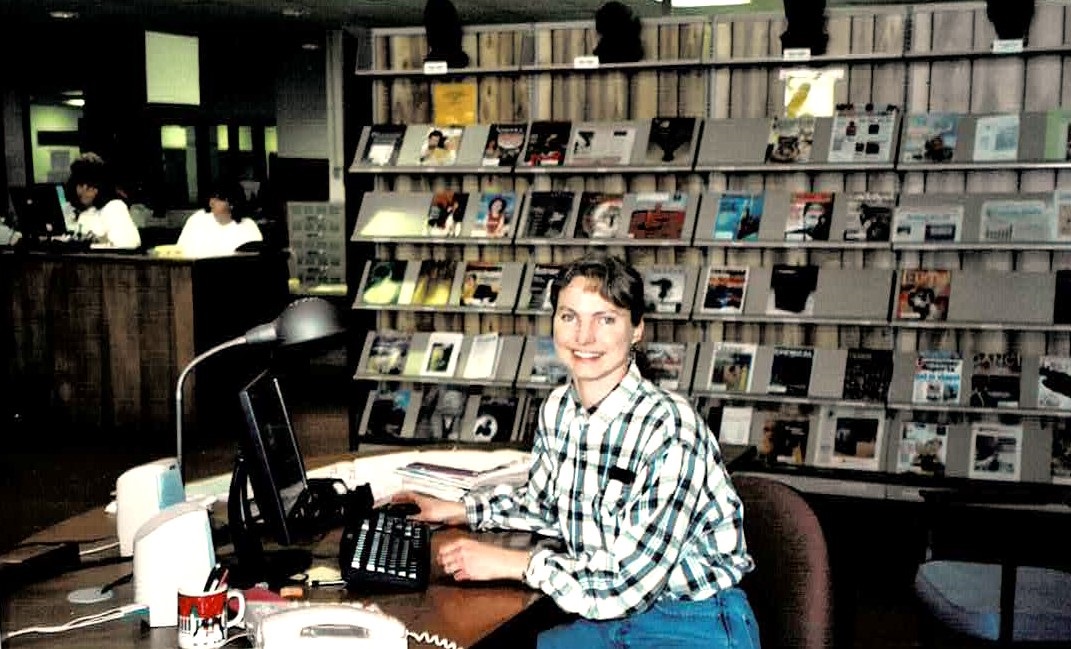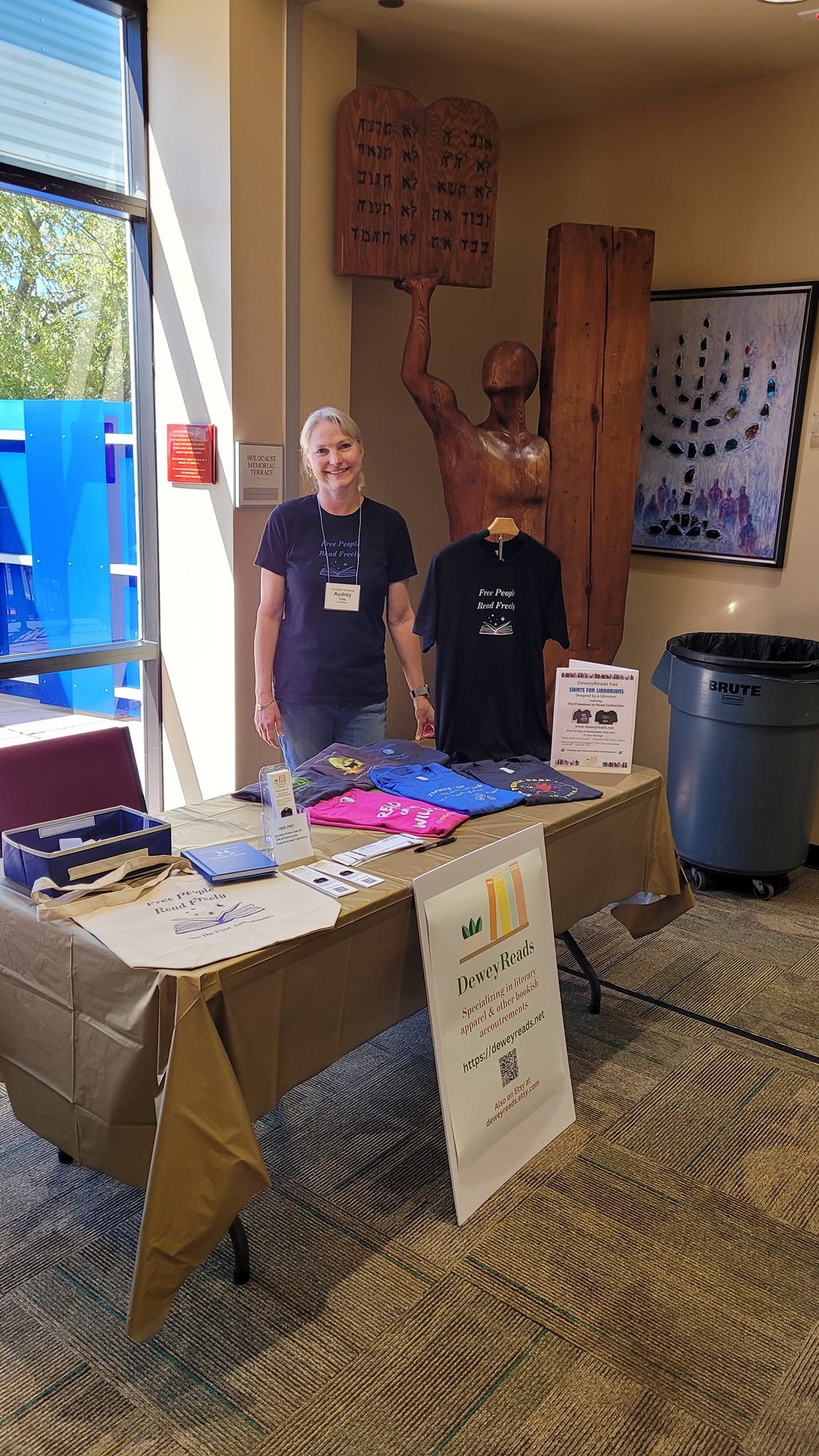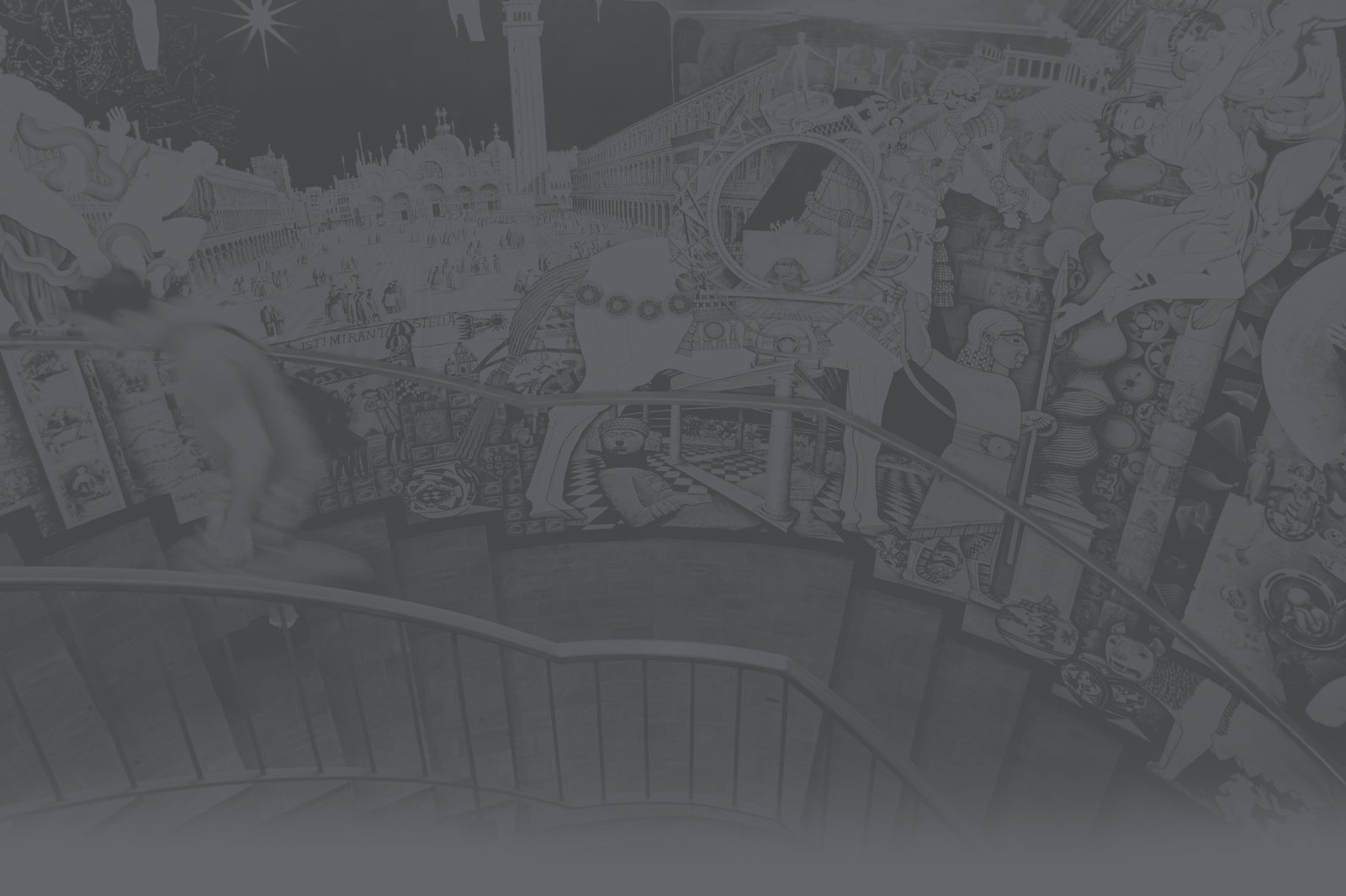Librarianship is an exciting and diverse career path. Erika James, Access Services, interviewed alumni Audrey Tolle on what it was like to embark on this professional path. Coates Library has changed over the years but Audrey remembers it well. Do you know what microfiche is? Check out this interview to learn more about becoming a librarian.
How did you become a librarian?
I hadn’t planned to go into the field until after graduating from Trinity. With an English degree during a recession and not wanting to teach, I had a (not surprisingly) difficult time finding a good job. I wanted to write, but I knew I would need a day job. I ended up working for the first year and a half at a bookstore in my old neighborhood in East Dallas. Even though it only paid minimum wage when I started, I loved being around books and helping people. One of my coworkers was a retired librarian, and she gave me the idea of pursuing this career. She encouraged me to apply to library school at the University of North Texas, which is where I got my MLIS two years later.
How did you decide what kind of library you wanted to work in?
I originally wanted to work in an academic library, as I thought the more scholarly, research orientation would be rewarding. While in library school, I started working part-time for a now-defunct telecom company, MCI, in what would be categorized as a “special” library. It was a small documentation center in their network engineering lab, but I did quite a bit of reference work there, and it led to a full-time position in their facility in Colorado Springs. The primary responsibility of the job was performing research for software engineers. This was just before the Internet took on the user-friendly Web interface, and doing online research there meant dialing into databases that charged by-the-minute search fees as well as per article retrieval fees, usually through Dialog’s service. Search strategies needed to be carefully planned, including which of the many databases to use and the commands to be given. It was a high-pressure environment, with layoffs a fairly common occurrence.

Audrey at Pikes Peak Community College reference desk.
After three years, I was able to make a change and started working for the local community college library. I headed the reference department there for seven years, and it was a completely different experience from the corporate world. Working with the students and faculty was much more meaningful to me. The small budget could make building the collection a challenge, but it gave me the opportunity to grow professionally, to lead a team, and to teach. I was also able to write, including both nonfiction and fiction, and had a few things published in smaller, local journals.
What made you decide to go into public libraries? What are some of the pros and cons of this type of library?
The change came about when my former husband and I wanted to move to more of a mountain town, west of the Continental Divide. I had also started to write screenplays, and when I saw a position posted for the Aspen library, I thought it might offer the bonus of making contacts in the film business. It was an unusual work environment, with many visitors from all over the world, as well as the rich and sometimes famous. I didn’t sell a screenplay, but I did meet some interesting people! And that’s the beauty of public libraries: You interact with the greatest variety of people, from babies to senior citizens. Their requests are also more varied, and some can be strange or amusing, or both. You never know what the workday will bring, particularly in the public-facing roles.
After moving back to Texas in 2012, I worked in two other public libraries. The first was in Kerrville. It was also an unusual experience, more because of what was happening when I started the job. The library was in the final phase of a major renovation, and there was a lot of physical labor involved in moving and assembling shelves and furnishings as well as the books. The city didn’t have enough staff in their facilities department to devote to the project, so the library staff got to do a lot of the heavy lifting. We worked long hours in the weeks before the grand re-opening to get everything ready, but it was rewarding to see it take shape, and beautiful when it was done.
I gained more experience with renovations at the Sanger library, where I was the director for ten years. We had two unplanned renovations due to flooding, when the fire suppression sprinkler pipes burst after hard freezes. Fortunately the city’s insurance covered the cost of repairs and most of the new materials, but the books were difficult to replace. We took advantage of the building being closed and made quite a few changes, improving the interior space on both occasions. As with many smaller towns, the city didn’t have enough resources to do everything that needed to be done, but we managed with a little help from our friends – including Friends of the Library members. The lack of funding can be one of the biggest drawbacks in public libraries. The increasing number of “book challenges,” or attempts to ban books, is also a big problem for both public and school (K-12) libraries. Librarians being threatened with criminal prosecution for having books on the shelves that upset some people (which is nothing new, by the way!) is not only bad for the health of the profession, but also for first amendment rights and a free society.
As your role became more administrative, what tasks did you miss doing?
Helping patrons find the information they needed, especially the more out-of-the ordinary requests that could be like investigative work. I also missed some of the collection development, although with Sanger being a small library, I was still pretty involved in the selection process.
What do you consider one of your successes as a librarian?
The renovation of the Sanger library. As I mentioned earlier, it was difficult to pull off, but we were able to make much-needed improvements, including the creation of a larger public computer area and service desk, and a study room. The positive reactions of patrons when they saw the changes made it all worthwhile.
Coates library is a popular place on campus! How did students use the library when you attended Trinity, and what was your experience?
I think it was similar in its use as a place to study and do research, although many of the tools have changed. This will give you some idea of how old I am, but I remember using microfiche readers that functioned as the catalog, which was a step up from the old card catalog! I also remember using the reserve reading room quite a bit, especially for the creative writing classes, when we would put our stories on reserve for the other students in class to read and critique. I’m guessing the process is different now, with students having their own computers.
What have you been doing more recently?
After leaving the Sanger library last year, I worked on a small online business I had just started, DeweyReads. It specializes in bookish apparel and a few other products such as tote bags and journals. I started with an Etsy shop, offering a handful of designs for last year’s common Summer Reading theme for public libraries, “All Together Now,” and expanded it to include designs promoting reading in general and a few for other themes like the environment and Irish culture. I also launched a Shopify site, http://deweyreads.net. Although you may hear about some entrepreneurs making fortunes through Print on Demand, there are so many people doing it now, it can be hard to set yourself apart and really build a brand that customers trust. Even though the business hasn’t become a real money maker, it has been a valuable learning experience, from the marketing aspect to the details of e-commerce. I also got back into writing, I’m revising a novel I’ve had on the back burner for years. I found myself missing library work though, and I started working part-time for a nearby university, TWU. Among other things, I’ve learned how to create LibGuides, which is such a great tool for librarians!

Audrey at the DeweyReads table.
Please recommend a book or two that you think every librarian should read.
There are so many great books out there, it’s hard to pick just one or two. As far as a good, engaging history of libraries goes, there’s Matthew Battles’ Library: An Unquiet History. It was written about 20 years ago, so it’s not the most up-to-date work, but it includes fascinating details about the libraries of long ago, including Alexandria and the Medici library in Florence.
For Banned Books Week last year, I read The Bluest Eye. I had read Morrison’s Beloved years ago and had been wanting to read another one of her novels. After seeing it on so many banned books lists, I decided it was time. I knew it wouldn’t be an easy read, but I wasn’t expecting it to haunt me the way that it did. The material is for a more mature audience, but it does what literature should do, which is to move the reader.
What superpower would you like to have relevant to the library field?
Thank you for limiting the question, otherwise I would’ve pondered it too long! I think to be able to speed read and fully absorb the information. I tend to read slowly, so speed reading is something I’d like to be able to do. I don’t think it’s a superpower on its own, but if it came with complete comprehension, that could really come in handy.
